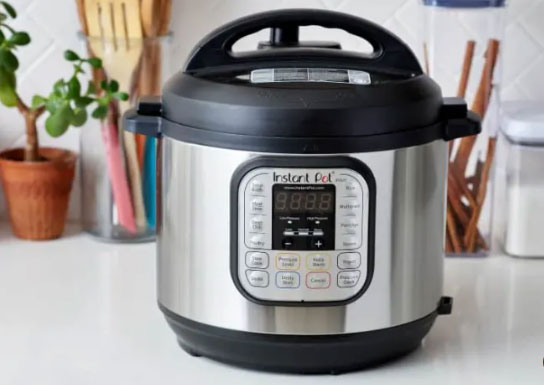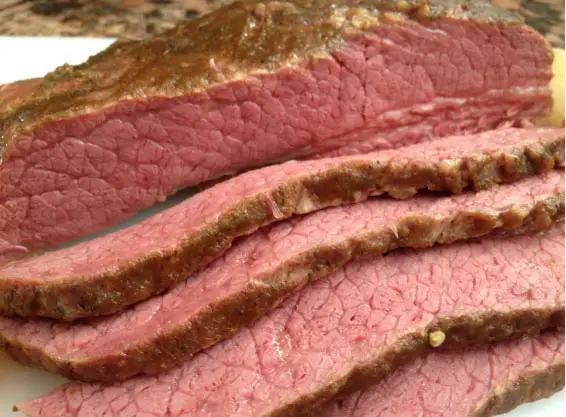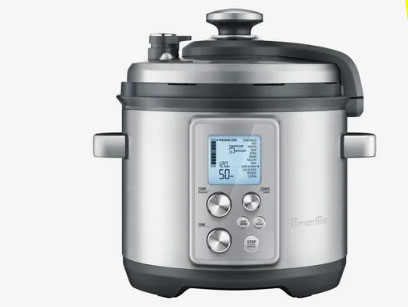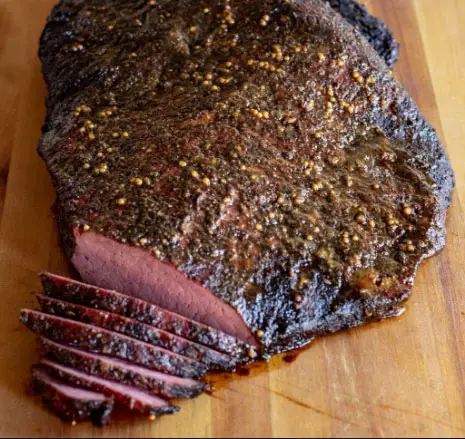Black Angus Corned Beef Too Tough
Got tough corned beef on your first try? Well, that's excusable, especially if you were just testing out your cooking skills. However, getting it while preparing for a St. Patrick's day feast can be quite the anticlimax.
But don't fret! Fixing your tough corned beef is actually easier than you thought. And yes – it'll still have all the flavors you packed in at the beginning.
So, how do you go about saving your tough corned brisket?
Ideally, tough corned brisket is mostly a result of undercooking or overcooking. If undercooked, simmer it in a pressure cooker for longer and at over 250 °F. On the other hand, if it's overcooked, turn down the heat and add more water.
Simple, right?
Well, a few extra details would definitely help. So, if you have the time, there's a little more to the process that we'd love to share.
What Does It Mean When Corned Beef Is Tough?
Tough corned beef is often dry, chewy, and unpleasant to eat. And while most people who've had it before can attest to that, it's always a slightly different experience for everyone.
The truth, however, is that it's quite difficult to finish a serving without tiring your jaws from chewing. This usually leads some people to throwing away their corned beef.
Corned beef might already be tough before cooking. This is mostly true if your raw meat wasn't deep red. But preparing it the wrong way is usually the main cause of the toughness. In addition, the toughness can be a result of:
- Choosing the wrong cut
- Cutting meat in the wrong direction
- Undercooking or overcooking
Is Corned Beef Supposed To Be Tough?
Naturally, yes. And this goes back to the meat itself. Corned beef actually comes from the lower chest of the cow (brisket) which is composed of dense, tough muscle.
Luckily, you can tenderize tough corned beef at this stage before you even begin cooking. Simply rinse it under cool water several times, or use a meat mallet to pound the meat gently.
In addition to tenderizing the meat, the proper cooking methods will ensure super-tender corned beef is the result every time.
What Causes Tough Corned Beef?
As mentioned earlier, cooking corned beef the wrong way is the top cause of tough corned beef most of the time. However, the taste and texture of your corned beef can help reveal why it's tough. In most cases, there are two likely scenarios:
- Scenario 1: Your corned beef is tough and undercooked
- Scenario 2: Your corned beef is tough and dry
Scenario 1: Corned Beef Tough And Undercooked
You may come across corned beef that is tough and undercooked. This is likely because of two things as well. These include:
- Cooking for a short time
- Cooking on low heat
Reason 1: Cooking the Meat for a Short Time
Corned brisket is naturally tough. Therefore, it requires more cooking time and needs unrushed simmering. You'll be left with tough and undercooked meat if you stop cooking it before it reaches its internal temperature (145-160°F).
| Cooker | Ideal Cooking Time | Temperature Range |
| Stovetop | 3-5 Hours | 195-220°F |
| Pressure Cooker / Slow Cooker | 7-9 Hours | 200-220°F |
| Crock Pot / Instant Pot | 3-4 Hours | 200-210°F |
For stovetop cooking, a three-pound corned beef requires at least 3 hours. For a slow cooker cooking a three-four-pound corned beef will require 7-9 hours of cooking.
Reason 2: Cooking on a Heat That is Too Low
As much as corned beef is best cooked over low heat, ensure the temperature is not lower than 250°F. Corned beef must be cooked above 250°F so that the tough, stringy meat will separate.
Corned beef becomes tough and chewy when you cook on a heat that is too low. The result of cooking over heat that is too low is tough and stringy corned beef rather than soft and tender.
Scenario 2: Corned Beef Dry And Tough
Dry and tough corned beef is often inedible and unpleasant to eat. This is likely because:
- You didn't put enough water
- You cooked on high temperatures
Reason 1: Not Putting Enough Water
Water is crucial for simmering corned beef if you want to end up with very tender meat. But knowing the amount of liquid you should use is even more important.
With that said, you should always cover your meat completely with water.
Ensure you add enough water to the cooker/pot so that the meat is submerged. When there is not enough liquid covering the meat, your corned beef will come out dry and tough.
Reason 2: Cooking Over a High Temperature
Corned beef doesn't like high heat. When cooked on high for long, corned beef is likely to come out dry and tough. You need to simmer corned meat at a low temperature.
Regardless of the way you want to cook the meat, you have to provide low heat. A low, gentle simmer is necessary if you're going to end up with tender corned beef.
How To Soften/Tenderize Tough Corned Beef in Different Cookers?
Can you fix tough corned beef after cooking? Wel, yes. And the key to tenderizing your tough corned beef is simply to let it cook for a little longer.
Then again, you're at liberty to choose a cooker that you fancy to tenderize the tough corned beef. A few that we'll be looking at below include:
- Crock pot / Instant pot
- Slow cooker / pressure cooker
Softening Tough Corned Beef In Crock Pot/Instant Pot

Thanks to the pressure cooker setting on the instant pot, you can soften tough corned beef in a short time. This method is convenient and fast, so it not only saves you time but your tough corned beef too. Here are the 6 steps of what you should do:
- Step 1: Place corned beef in the bowl of an instant pot along with onion and garlic.
- Step 2: Add enough water to completely cover the corned beef, approximately 8 to 10 cups.
- Step 3: Secure the lid of the instant pot. Cook on high "pressure cook" setting for 1 hour, 25 minutes.
- Step 4: Once time is over, turn off the machine and manually release the pressure; carefully remove the lid.
- Step 5: Transfer the corned beef to a cutting board using tongs, cover with foil to keep warm.
- Step 6: Slice the meat against the grain, serve and enjoy!
Softening Baked Corned Beef When Tough

Sometimes corned beef becomes tough and challenging to chew when baked on heat that is too low. This can also happen when you bake on high heat for too long. However, you can fix your tough corned beef in these 4 simple steps instead of throwing it away:
- Step 1: Place the tough corned beef in a large stockpot. Add some onions and a slice of cabbage too if you fancy.
- Step 2: Pour a gallon of water into the pot.
- Step 3: Cover the pan and set the stove to medium heat, or about 325 degrees Fahrenheit.
NB: Corned beef must be heated at above 250 degrees Fahrenheit to separate the tough, stringy meat. Simmering it in this manner can revive its taste and texture.
- Step 4: Let the corned beef simmer for about 30 minutes to finish the cooking process and make it tender. The onions and cabbage add to the flavor of the meat, and you can eat them.
Softening Tough Corned Beef In Slow Cooker/Pressure Cooker

You are probably wondering, 'why is my slow cooked corned beef tough?' If you have tough corned beef and also own a pressure cooker or slow cooker, we've got you covered too.
You can simmer tough corned beef by using a pressure cooker or slow cooker to soften it. And you only need to follow these 5 steps:
- Step 1: Cut some onions and carrots and add them to the pressure cooker. Place your corned beef on top of the vegetables.
- Step 2: Pour in the liquid and ensure it covers the meat wholly. The meat should be submerged.
- Step 3: Set the pressure cooker to 2 bars and cook the meat for 25-30 minutes.
- Step 4: Next, check to ensure the internal temperature of your corned beef is ideal. If it is perfect, you will be done. If it is a little less, then simmer it a bit more.
- Step 5: Finally, let the meat rest for a few minutes before slicing it thinly against the grain.
The instructions are almost the same for a slow cooker but with just two differences – time and temperature. Below are the appropriate durations for the two different temperature settings to make it easier for you.
| Temperature Setting | Time |
| High | 35-60 minutes |
| Low | 60-120 minutes |
After the time has elapsed, just check the temperature of the meat.
Softening Tough Smoked Corned Beef

Smoked corned beef has an extra flavor and an extra kick. Are you curious, 'why is my smoked corned beef tough?' You may end up with tough smoked corned beef either because of undercooking or overcooking.
And can you soften tough smoked corned beef? Well, yes.
Although the best method is to set a timer to ensure you don't overcook. But if you do, simply follow these 6 steps below:
- Step 1: Preheat the oven to 350 degrees Fahrenheit.
- Step 2: Place tough smoked corned beef in a pan with a bit of liquid, then cover completely with a lid or foil.
- Step 3: Place the pan in the oven and cook for about 30 minutes. The key here is to get the meat to cook at 250 degrees for 30 minutes. This should result in tender corned beef.
- Step 4: After the time is done, remove from the oven and set aside to rest for about 15 minutes.
- Step 5: Slice the meat thinly against the grain for maximum tenderness. Serve and enjoy once done.
Can I Recook Tough Corned Beef?
Yes, you can re-cook corned beef to save tough corned beef. You can fix tough corned meat rather easily. That'd be much better than throwing it away.
Are you wondering why corned beef gets tough? Well, this is a result of either overcooking or undercooking the corned beef.
In case you undercook or overcook corned beef, you can do the following:
- Preheat the oven to 350 degrees Fahrenheit.
- Next, put the meat in a pan with a little bit of liquid, and cover completely with a lid or foil.
- Place the pan in the oven and cook at 250 degrees Fahrenheit for about 30 minutes.
That should tenderize the corned beef well enough so that you can enjoy it once again.
Alternatively, you can place the tough corned beef in a stockpot together with onions and cabbage. Add enough water to cover the meat and set the stove to about 325 degrees Fahrenheit.
This will ensure the tough, stringy meat separates and becomes tender. Simmering it in this manner can revive its taste and texture.
What If You Still Can't Soften Tough Corned Beef?
If you still can't soften tough corned beef, there's no need to worry. You can still make good use of the tough corned beef with a little creativity.
What To Do With Leftover Tough Corned Beef
Well, there are four things we could think of. Of course there are more, but these four can help set you on the right direction:
- Making corned beef and cabbage soup
- Making crock pot corned beef and cabbage chowder
- Making corned beef and cabbage casserole
- Making corned beef and cabbage on your slow cooker
Option 1: Make Corned Beef and Cabbage Soup
Corned beef and cabbage soup can be a healthy choice if you still have some tough corned beef leftovers. Here's how you can go about the process:
- Heat the butter in a large stockpot over medium-low heat.
- Add the onion and celery to the pot and saute
- Add the minced garlic, carrots, chicken stock, chopped cabbage, and barley. Add herbs and bring to a boil.
- Reduce the heat to low to maintain a simmer for 45 minutes.
- Add the corned beef and tomatoes; increase heat and bring it back to a boil. Reduce heat to low and simmer, uncovered, for 15 minutes.
- Taste and add salt, as needed.
- Serve and enjoy!
Option 2: Make Crock Pot Corned Beef and Cabbage Chowder
Your crock pot can come in handy if you fancy some corned beef and cabbage chowder. And the process is simple too as you can see below:
- Dice the corned beef, potatoes, carrots, and cabbage. Chop the onions finely.
- Combine the corned beef, cabbage, potatoes, carrots, cream of potato soup, onions and chicken broth, and in a slow cooker.
- Cover and simmer on low for 4 to 5 hours and stir halfway through cooking.
- Add 1 cup of light cream then add salt and pepper to taste.
- Cover the slow cooker and cook for about 20 to 25 minutes. Add more milk to thin slightly, if necessary.
Option 3: Make Corned Beef and Cabbage Casserole
You'll definitely love the taste of corned beef and cabbage casserole. What's more is that it'll only take a few steps to turn your tough corned beef to this delicacy.
- Preheat the oven to 375° F.
- Peel and chop the onion.
- Combine the chopped onion, condensed soup, and dry mustard in a bowl. Add the cabbage and corned beef, then place the mixture into an oiled 2-quart baking dish.
- Add salt and freshly ground black pepper to the casserole.
- Use a foil to tightly cover the baking dish and bake the casserole for about 30 minutes. Check and add a little broth, water, or milk if it looks dry. Cover and keep cooking for another 30 minutes or until the cabbage is soft.
- Plate up and enjoy!
Option 4: Make Slow Cooker Corned Beef and Cabbage
This is simply recooking your tough corned beef. However, it involves a few steps that are slightly different from when you prepared the corned beef the first time.
- Rinse the corned beef in cold running water. Then, set the brisket inside the empty slow cooker.
- Cover the corned beef with water, beer, and spices, followed by the vegetables. You want the brisket completely submerged
- Cook the meat and harder vegetables for 8 to 10 hours on low, then add the cabbage for the last 45 minutes of cooking.
How To Tell If Corned Beef Is Bad and Unusable
How can you tell if cooked corned beef is bad and unusable? The best way is to look at the corned beef and smell it. Signs of bad corned beef are a slimy texture and a sour smell. Discard any corned beef with an off appearance or smell. Don't taste it first.
Corned beef, when prepared or stored incorrectly, may become a hub for Clostridium perfringens. This causes "one of the most common types of food-borne illness in the United States," according to the Centers for Disease Control and Prevention (CDC).
How long can you store corned beef? Uncooked corned beef in a pouch with pickling juices which has a sell-by date or no sell-by date can be held 5 to 7 days in the refrigerator, unopened.
Corned beef with a use-by date can be stored unopened in the refrigerator until that date. An uncooked corned beef brisket, when drained then well wrapped, can be frozen for a month.
After cooking, corned beef may be frozen for around 2 to 3 months and be refrigerated for about 3 to 4 days. The flavor and texture will diminish with prolonged freezing, but the products are still safe.
4 Tips To Keep Corned Beef From Getting Tough
Tip 1: Fill the Pot with Enough Water
You need to cover the meat with water or liquid completely to achieve the perfect tenderness. The amount of water in the pot is essential to simmering corned beef correctly.
Check the meat occasionally during cooking and add water if the level of liquid drops. When there is not enough liquid covering the meat, it may come out dry, tough, and chewy.
Tip 2: Cook Slowly at a Low Temperature
Just so you know, corned beef doesn't like high heat. Cooking corned beef over high heat for too long makes it tough and chewy instead of soft and tender. You need to simmer corned meat at a low temperature for the best results.
Corned beef is best cooked over low heat regardless of the cooking method. For example, a low, gentle simmer in the slow cooker or on the stovetop are some exceptional methods to cook tender corned beef.
Tip 3: Cook the Meat Long Enough
Corned beef requires more cooking time since it needs you to cook it slowly, and it also comes from a tough cut of meat.
Cooking corned beef for a short time might leave you with undercooked corned beef. You can use a meat thermometer to ensure the meat reaches an internal temperature of 145-160 degrees Fahrenheit.
It takes at least three hours for a three-pound corned beef to cook on the stovetop. A three-four-pound cut cooked on low in a slow cooker takes seven-nine hours.
Tip 4: Cut the Meat Correctly
The cutting of the beef brisket is a crucial factor to consider. If you use the flat cut, the meat will never be tender. Therefore, you should opt for the point cut of the brisket.
You should always slice your corned beef against the grain after cooking it. If you cut through the muscle fibers, the meat will be easier to chew. Avoid slicing beef with the grain (in the same direction as the muscle fibers)
Frequently Asked Questions (FAQs)
Is Tough Corned Beef Overcooked Or Undercooked?
Most of the time, tough corned beef is usually a result of overcooking the meat. However, you may end up with undercooked tough corned beef if you cook the meat for a short time.
Which Cut Of Corned Beef Is More Tender?
The point cut of corned beef is more tender and juicy after cooking. Not only is it thicker and more flavorful, but it also has more fat content.
How Do I Tell If Corned Beef Is Done Slow Cooker?
First, the meat should have an internal temperature of 145 degrees. Second, it needs to be fork-tender. To check for tenderness, take a fork and pull at it; the meat fibers should easily pull apart.
Can I Fix Tough Corned Beef?
If the meat got tough before cooking, you've to rinse it in water or pound it. If it's tough after cooking, you need to cook it a little longer. You can simmer it in a slow cooker, pressure cooker, or stockpot. You can use the oven for cooking it too.
Is Over Cooked Corned Beef Tough?
When cooked over high temperatures for too long, corned beef is likely to turn out tough and chewy rather than soft and tender. So yes, often overcooked corned beef is tough.
Can Corned Beef Be Overcooked?
You can overcook corned beef. If you leave corned beef on the stove for too long, it can be overcooked and become tough. When cooked on high for too long, corned beef will become tough.
Can You Over Boil Corned Beef?
Yes, you can over-boil corned beef. Boiling corned beef is one of the mistakes commonly made. Boiling will make the meat tough and chewy. Something worse than boiling corned beef is over boiling the meat.
Closing Words
You can avoid tough corned beef when cooking. The key is to avoid common mistakes during the cooking process. These mistakes include: cooking over a high temperature, not putting in enough water, and cooking on too low. Avoid cooking the meat for a short time.
However, if you end up with tough corned beef, don't throw it out. Using our guide, you can soften tough corned beef in different cookers efficiently.
If you still can't soften tough corned beef, you can make good use of it by incorporating it in tasty recipes.
Source: https://www.spicysaltysweet.com/how-to-fix-tough-corned-beef/
0 Response to "Black Angus Corned Beef Too Tough"
Postar um comentário